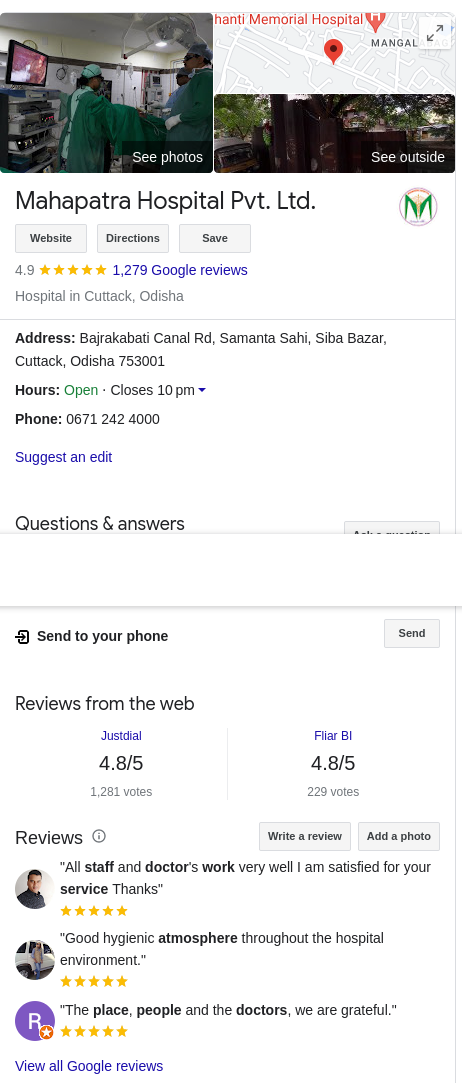Facing infertility can be an emotional and challenging journey for any couple. In India, where family is central, the pressure to have children can be immense. Understanding the causes and available treatments is the first step toward finding a solution and providing hope.
This article aims to simplify the complexities of infertility, offering You a clear and easy-to-understand guide to the most common causes and modern treatment options.
What is Infertility?
In simple terms, infertility is the inability of a couple to conceive a baby after one year of regular, unprotected intercourse.
If as a woman your age is over 35, this timeline is often shortened to six months. Infertility can affect anyone, regardless of gender, and is not a sign of personal failure. It's a medical condition with specific causes that can often be diagnosed and treated.
Common Causes of Infertility
Infertility can be caused by issues in either partner or a combination of both. In some cases, the cause is "unexplained," meaning doctors can't pinpoint a specific reason.
Causes in Women
- Ovulation Problems: This is the most frequent cause. The ovaries may not release an egg regularly, or at all. Conditions like Polycystic Ovary Syndrome (PCOS) and hormonal imbalances are common culprits.
- Blocked Fallopian Tubes: The fallopian tubes are where the sperm and egg meet. If they are blocked or scarred due to infections (like pelvic inflammatory disease), endometriosis, or previous surgeries, the egg cannot travel to the uterus.
- Uterine Issues: Problems with the uterus itself, such as fibroids (non-cancerous growths), polyps, or an unusually shaped uterus, can interfere with a fertilized egg's ability to implant and grow.
- Age: A woman is born with all the eggs she will ever have. As she ages, the quantity and quality of her eggs decline, especially after the mid-30s, making conception more difficult.
Causes in Men
- Sperm Issues: Problems with sperm are a very common cause of male infertility. This can include:
- Low sperm count or a complete absence of sperm.
- Poor sperm motility, where the sperm cannot swim effectively.
- Abnormal sperm shape, which prevents them from fertilizing an egg.
- Varicocele: This is a swelling of the veins in the scrotum. It's the most common reversible cause of male infertility, as it can overheat the testicles and affect sperm production.
- Hormonal Imbalances: Hormones produced in the brain and testicles are essential for sperm production. Any imbalance can lead to low sperm count or poor sperm quality.
- Structural Blockages: Blockages in the tubes that transport sperm can prevent them from being ejaculated. These can be caused by previous infections, surgery, or genetic conditions.
Modern Treatment Options
The type of treatment depends on the cause of infertility, the couple's age, and other personal factors. Here are some of the most common and successful modern options available for patients and persons looking out for the Infertility Treatment. Always Consult your Gynecologist for the Detail investigation and treatment options.
1. Medication and Lifestyle Changes:
- For women with ovulation issues like PCOS, fertility drugs can stimulate the ovaries to release eggs
- For both men and women, lifestyle changes such as maintaining a healthy weight, exercising regularly, and avoiding smoking and excessive alcohol can significantly improve fertility.
2. Intrauterine Insemination (IUI):
- This is a less invasive procedure where specially prepared, healthy sperm are directly placed into the woman's uterus around the time of ovulation.
- It's a common first step for couples with unexplained infertility or mild male infertility.
3. In Vitro Fertilization (IVF):
IVF is a more advanced and widely used treatment. The process involves:
- Stimulating the woman's ovaries with medication to produce multiple eggs.
- Retrieving the eggs and fertilizing them with sperm in a laboratory dish.
- Culturing the resulting embryos.
- Transferring one or more healthy embryos back into the woman's uterus.
IVF is highly effective for many causes of infertility, including blocked fallopian tubes, severe male factor infertility, and advanced maternal age.
4. Intracytoplasmic Sperm Injection (ICSI):
- Often used in conjunction with IVF, ICSI is a procedure for severe male infertility.
- A single, healthy sperm is selected and directly injected into an egg. This bypasses any issues with sperm motility or ability to penetrate the egg.
5. Surgical Procedures:
- Surgery can be used to treat underlying conditions. For women, this can include removing fibroids or polyps, or repairing blocked fallopian tubes.
- For men, surgery can correct a varicocele or clear blockages in the sperm-carrying tubes.
Frequently Asked Questions (FAQ)
Q. When should we see a fertility specialist?
A. If you are under 35 and have been trying to conceive for one year, or if you are 35 or older and have been trying for six months, it's time to seek a specialist.
Q. Is infertility a "woman's problem"?
A. No, that's a common misconception. Infertility affects men and women almost equally. About one-third of cases are due to female factors, one-third to male factors, and the remaining cases are a combination of both or are unexplained.
Q. Is infertility treatment expensive?
A. The cost of treatment varies widely depending on the type of procedure and the clinic. While some treatments can be costly, many couples find it to be a worthwhile investment in their future family. It's important to discuss all financial aspects with your doctor and clinic.
Q. How successful are these treatments?
A. Success rates depend on many factors, including the couple's age, the specific cause of infertility, and the type of treatment. While no treatment guarantees success, modern reproductive technologies have very high success rates and have helped millions of couples become parents.
Q. Does stress cause infertility?
A. While stress itself doesn't directly cause infertility; chronic, high levels of stress can affect hormonal balance and ovulatory function. Managing stress through yoga, meditation, or counseling can be beneficial for both physical and mental well-being during this time.


.webp)
.jpg)
.jpg)

























